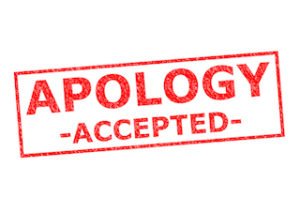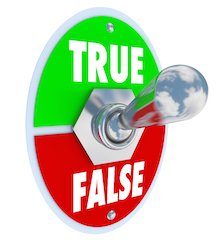Deciding which broker-dealer (BD), financial marketing organization (FMO), or registered investment advisor (RIA) with whom to affiliate is never a trivial matter. Typically, financial advisors and insurance agents choose to contract with those organizations that provide the optimal mix of payout, product choice, marketing support, technology prowess, sales/marketing assistance, and compliance expertise. However, many advisors fail to consider the errors-and-omissions (E&O) coverage provided by (or referred through) their partners. This can be a costly mistake.
The good news is most such organizations provide access to some form of E&O coverage. If the partner is ethical and committed to building a long-term relationship with you, the E&O protection should be affordable and of high quality. Yet, not all organizations are ethical or committed to their producers. Do your due diligence to confirm you’re getting a good E&O deal.
As with all things financial, complexity rears its head quickly when discussing E&O coverage. Practices vary based on whether the entity is a BD, FMO, or RIA. Further, within each type of organization, there’s no standard way of delivering E&O coverage. Here are some broad guidelines to consider.
If you’re a registered securities representative, selecting a broker-dealer means you’re required to buy the firm’s errors-and-omissions coverage. The BD arranges for a block of coverage from an insurance company. Then, it divvies up the block amongst its contracted reps, charging each one a fee. Now, here’s where things get complicated. Some BDs will simply charge their reps their cost. Others will view E&O as a profit center, “marketing it up” to a greater or lesser degree. What’s more, some will treat all reps the same, charging a standard rate. Others will vary the rate based on the rep’s production. Still others might play favorites, charging a better price to reps whom they “favor.”
Despite these complexities, getting E&O from your broker-dealer makes more sense than not. Selling securities in volatile times, especially to high net-worth clients, creates substantial risk for advisors. Getting covered through your BD simply makes good business sense. And since the BD wants you to be covered in order to minimize its own risk exposure, it will hopefully do its best to procure high-quality and affordable coverage. In the rare event a BD overcharges for E&O, registered reps will have to factor that into their overall BD assessment. If the firm is lacking in other areas—say, its product portfolio is weak or its computer support is lacking—then it might make sense to shop for another BD.
But be careful. A BD that charges a low amount for E&O might be capturing profits elsewhere in the relationship through higher securities transactions costs (or other costs). Evaluate the BD’s E&O offering in the context of its total product and service quality.
In the insurance world, agents have more flexibility to source their own E&O protection. As with BDs, FMOs typically require agents to have E&O insurance as a condition of contracting. However, unlike BDs, FMOs don’t access a block of coverage for agents to draw upon. Instead, they often research the market and make referrals to one or more “preferred” E&O providers. Since agents aren’t required to follow the FMO’s recommendation, they should evaluate them on their merits:
- Do they provide high enough coverage limits?
- Do they cover your specific products and business activities?
- Is the insurance company highly rated and financially stable?
- Does the company have a lengthy track record of paying claims?
As with BDs, the good news is that FMOs are unlikely to refer you to a grossly inadequate E&O insurer. That’s because they want to reduce their own financial liability by creating a risk buffer at the agent level. Once again, price may become an issue for some agents. If the recommended policies are too expensive, be sure to shop around for better deals.
Avoid the common practice of simply signing up for E&O insurance in order to provide the FMO with a coverage certificate, then dropping the coverage at the first opportunity. According to E&O experts, this may save you money in the short run, but will create potential financial problems in the long run due to coverage gaps. If you’re committed to staying in financial services, don’t just buy E&O to generate a certificate.
For investment advisor representatives, the options depend on the type of RIA selected. If the RIA is a wirehouse type, then advisors will be required to purchase the RIA’s E&O (see earlier BD discussion). If the advisor is affiliated with an independent RIA, then E&O practices will mirror those of insurance FMOs. So the onus again will be on the RIA to shop for a reasonable deal. In either case, it is crucial to fully review the coverage supplied and make sure it’s suitable to your business model.
Finally, when it comes to errors-and-omissions insurance, our best advice is perhaps the simplest. Do your due diligence before buying E&O insurance, make sure you’re not overpaying for it, and keep it in force continuously. Also, do business in such a way that you will never need to use it. That’s the savviest E&O decision you can make in today’s litigious environment. Good luck!












